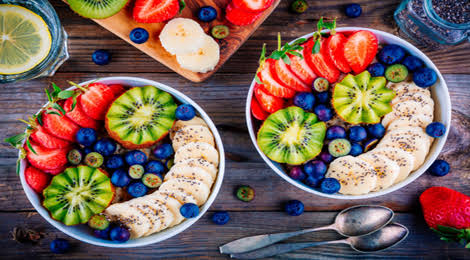
Fiber has a great benefit on the nutritional and health levels for humans, as it facilitates the digestion process, is considered a natural laxative, and treats constipation.
When a person suffers from indigestion and feels the fullness of his digestive system with abdominal pain and difficulty defecation, this is evidence of constipation. And eating some foods rich in fiber (which is available in vegetables, fruits and grains), the stomach will gradually return to its normal state, and the person will get rid of waste in a normal way.
It is known from a health point of view that if a person suffers from constipation, then its signs appear clearly – the first of these signs is the dryness of the stool and the difficulty of its exit from the colon, which causes the person severe pain. The most important advice in this regard is to eat more foods rich in fiber.
The main reason for the prevalence of constipation in our time is due to the lifestyle we live in and our unhealthy methods of eating. We eat fatty and processed foods and do not eat enough amounts of natural, fresh foods rich in fiber, such as vegetables, fruits and legumes.
It has been observed that in countries with fewer cases of constipation, people are more likely to eat foods rich in fiber, but in countries with increased cases of constipation and digestive disorders, people usually accept foods with less dietary fiber.
Healthy nutrition experts determine a person’s need for dietary fiber, including a weight of 35 grams per day. It has been noted that people in this era have less than 16 grams of dietary fiber per day, and we can realize the terrible shortage of these fibers in our present age.
How does fiber benefit humans?
It was observed that dietary fiber has many benefits, in addition to its nutritional benefit, it was noted first that it is a laxative that facilitates the digestion process and treats cases of constipation.
The second benefit is represented in softening, moisturizing and softening the stool so that it is easier to pass out of the bowels. It is known that soluble dietary fiber turns into a “gel” (gel) after the absorption process. This gel coats the stool from the outside and prevents the colon from absorbing moisture. Dietary fiber also lubricates waste and stool so that it is easy to slide in and out of the intestinal tract without pain.
From the foregoing, it is clear that fiber has many nutritional, digestive and health benefits.
However, there is a point to be aware of, which is that increasing dietary fiber beyond the reasonable limit can lead to the opposite results, which is causing more constipation. The reason is simply that eating dietary fiber must be accompanied by drinking a good amount of water. Not drinking water with too much fiber can lead to more constipation.






